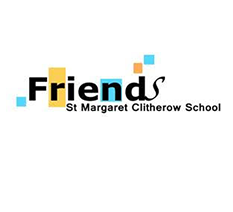Science
From the early days at St Margaret Clitherow School, children are provided with the opportunities to develop their scientific skills, knowledge and attitudes. Wherever possible scientific experiences are put into a practical and relevant context.
We realise that children have the best opportunity for learning Science when they are:
- Themselves handling materials, living and non living
- Designing, making or manipulating apparatus using a variety of materials, including junk items
- Moving around freely and finding the materials they need
- Discussing their work with each other and the teacher
- Busy doing things that they find enjoyable and important
- Trying to work out for themselves what to do from step to step and not expecting to be told what to do
- Able to observe, analyse and predict outcomes
- Puzzling over a problem
- Evaluating and comparing their ideas or observations with those of others.
In order to ensure progression through a broad and balanced science curriculum, we have implemented the New Curriculum from Y1 – Y6 using a variety of resources. The programme is topic based with scientific skills being taught and developed continually. In the Foundation Stage, science is taught within the learning goal knowledge and understanding of the world.
Intent
It is our intention in our chosen programme for Science to develop in all young people a lifelong curiosity and interest in the sciences. When planning for the science curriculum, we intend for children to have the opportunity, wherever possible, to learn through varied systematic investigations, leading to them being equipped for life to ask and answer scientific questions about the world around them. As children progress through the year groups, they build on their skills in working scientifically, as well as on their scientific knowledge, as they develop greater independence in planning and carrying out fair and comparative tests to answer a range of scientific questions. Each unit has an accompanying knowledge organiser which can be used to help reinforce the key knowledge for each unit as set out in the science national curriculum. The knowledge organisers help children to consolidate and retain the science knowledge they have learnt and also reinforce key scientific vocabulary from each unit. The Science scheme of work ensures that children have a varied, progressive and well-mapped-out science curriculum that provides the opportunity for progression across the full breadth of the science national curriculum for KS1 and KS2.
Implementation
The acquisition of key scientific knowledge is an integral part of our science lessons. Linked knowledge organisers enable children to learn and retain the important, useful and powerful vocabulary and knowledge contained within each unit. The progression of skills for working scientifically are developed through the year groups and scientific enquiry skills are of key importance within lessons. The progression of these skills is set out in the Science Progression Map. Each lesson has a clear focus. Scientific knowledge and enquiry skills are developed with increasing depth and challenge as children move through the year groups. They complete investigations and hands-on activities while gaining the scientific knowledge for each unit. Interwoven into the teaching sequence are key assessment questions, identified in green on lesson plans. These allow teachers to assess children's levels of understanding at various points in the lesson. They also enable opportunities to recap concepts where necessary. The sequence of lessons helps to embed scientific knowledge and skills, with each lesson building on previous learning. There is also the opportunity to regularly review and evaluate children's understanding. Activities are effectively differentiated so that all children have an appropriate level of support and challenge. The detailed lesson plans include adult guidance to ensure that teachers are equipped with secure scientific subject knowledge, enabling them to deliver high-quality teaching and learning opportunities while making them aware of possible scientific misconceptions.
Impact
In our scheme of work used, progress is measured through a child’s ability to know more, remember more and explain more. This can be measured in different ways in the units. The use of key questions ensures opportunities are built into the lesson for ongoing assessment. Attainment and progress can be measured across the school using our assessment criteria. The impact of using the full range of resources included in the science unit will also be seen across the school with an increase in the profile of science. The learning environment across the school will be more consistent with science technical vocabulary displayed, spoken and used by all learners. Whole-school and parental engagement will be improved through the use of science-specific home learning tasks and shared use of knowledge organisers. Children who feel confident in their science knowledge and enquiry skills will be excited about science, show that they are actively curious to learn more and will see the relevance of what they learn in science lessons to real-life situations and also the importance of science in the real world.
















